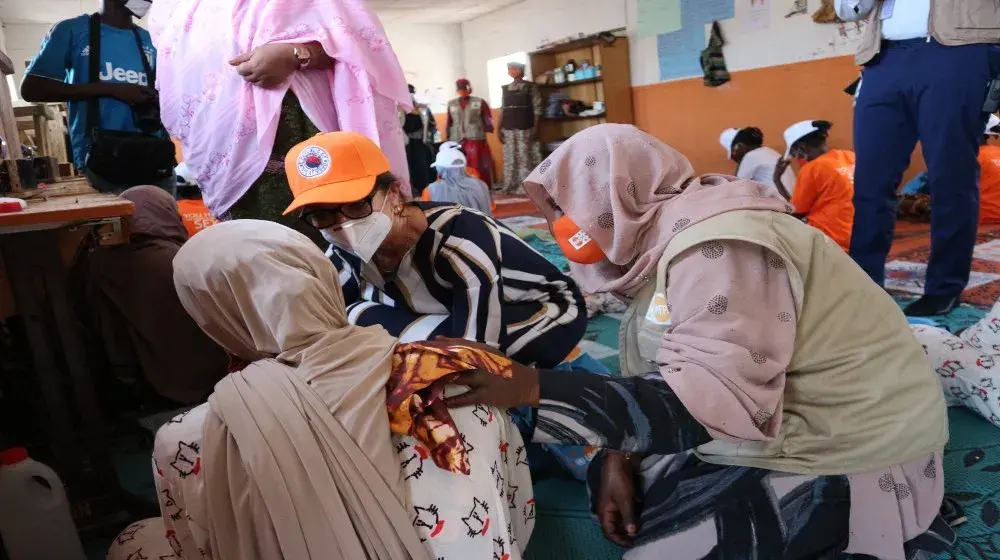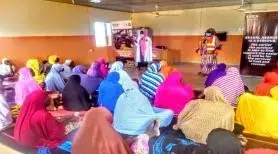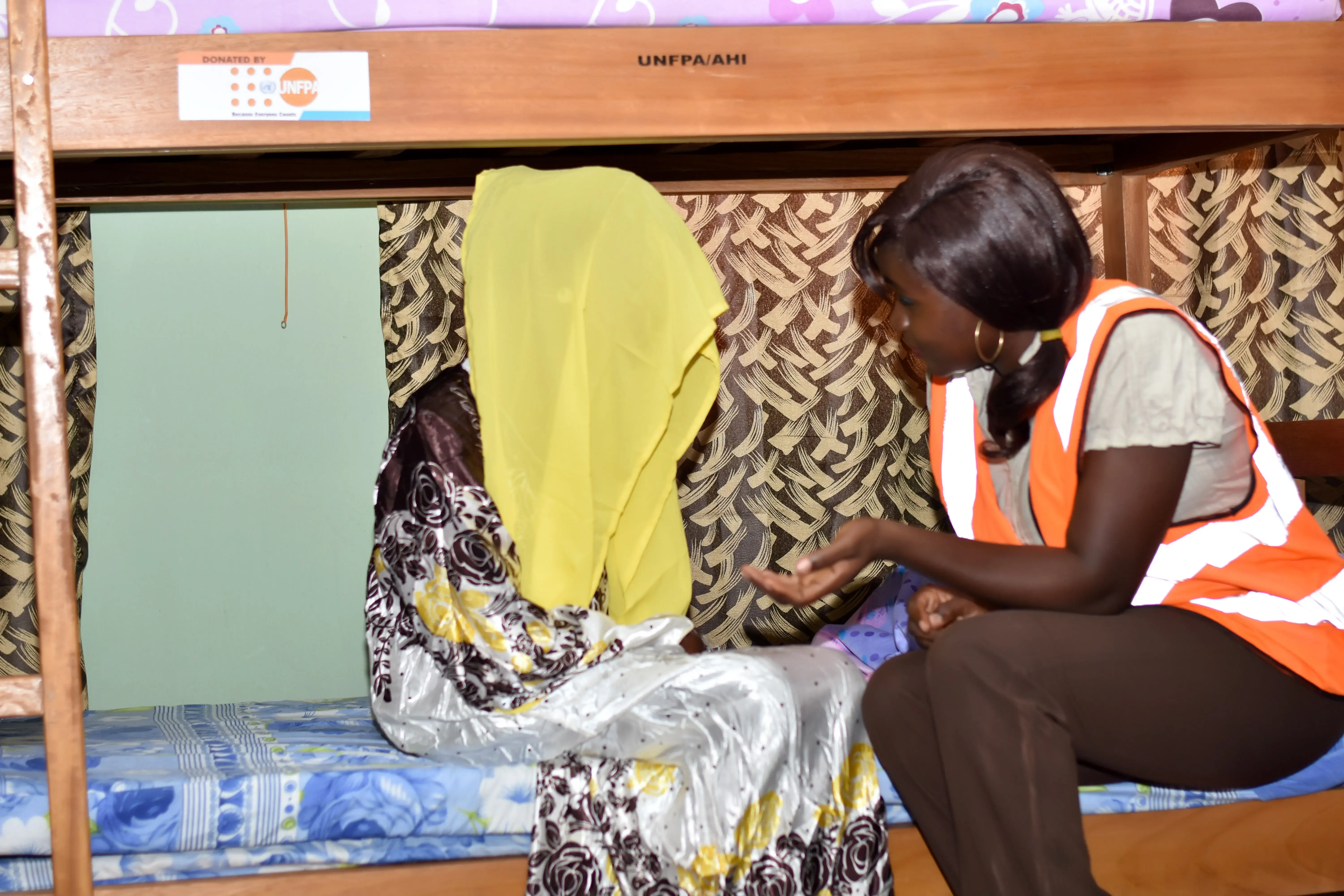Women & Girls Safe Spaces (WGSS) Offering Integrated SRH/GBV Services, Borno State
Background
- UNFPA has supported in establishing 29 Women & Girls Friendly/Safe Spaces (WGSS) established between 2015 and 2020 in Borno. This includes the 10 new WGSS funded by KOICA in 2018.
- One of the many consequences of the conflict and insecurity that have ridden the north-eastern part of Nigeria for the last decade is an increase in GBV cases. Humanitarian emergencies, as well as interventions, can compound existing risks by increasing the power imbalances between men and women and exacerbate GBV, Sexual Exploitation and Abuse (SEA) as well as unmet reproductive health needs.
- To address these multifaceted challenges, the UNFPA adopts the use of Safe Spaces to provide Integrated SRH/GBV services in a confidential, personal, respectful, and culturally sensitive manner void of bias, conflict, or potentially threatening actions, ideas or conversations; this allows individuals to build a sense of connection and belonging within their gender, reduces the social isolation or fear of stigmatization they experience, gain empowerment skills, and is a vital link in referring them to appropriate resources and programming.
The Women and Girls safe space provides a platform through which women and girls meet daily to rebuild their networks, make friends, have fun, discuss their concerns and needs and acquire life skills including information on various issues such as GBV, HIV/AIDS, reproductive health, hygiene, and sanitation. The safe space operates between 8 am-4 pm through weekdays. UNFPA trained and deployed GBV/SRH frontlines through the Ministry of Women Affairs and social development to ensure sustainability. Main activities that managed with strict compliance to COVID-19 include:
- Community sensitization. During these sessions, general information on GBV, SRH, HIV/AIDS, STIs, and menstrual hygiene is provided. The team always comprises two frontline psychosocial support counselors who conduct group sessions with up to 60 participants per week. On average around 160 people are reached in these sessions in this safe space per month.
- Community information dissemination. Community mobilizers disseminate GBV related information through house-to-house visits. The information dissemination sessions focus on types of GBV and the importance of seeking timely care as well as information on the existing referral pathways. On average around 300 people with the information dissemination per month.
- One-on-one counseling sessions. The PSS counselors have been trained to provide counseling to clients who have been affected by the insurgency including GBV survivors. On average around 40 people are reached in one-on-one counseling per month
- Skills acquisition activities. Activities included sewing machine training, production of liquid soap, groundnut oil, and perfume. Around 20 women and girls usually participate in the skills acquisition activity program per month.
- Material support: Dignity kits, washable sanitary pads, buckets, water bottles are provided based on the need to vulnerable women and girls
Challenges/Gaps & support needed
- The Covid-19 was a major challenge for the 2020 program year due to the lockdowns
- The relative increase in NSA activities also negatively impacted service provision in a few LGAs
- Full ownership of the government is needed through budgeting, staffing, and running of the Centre





